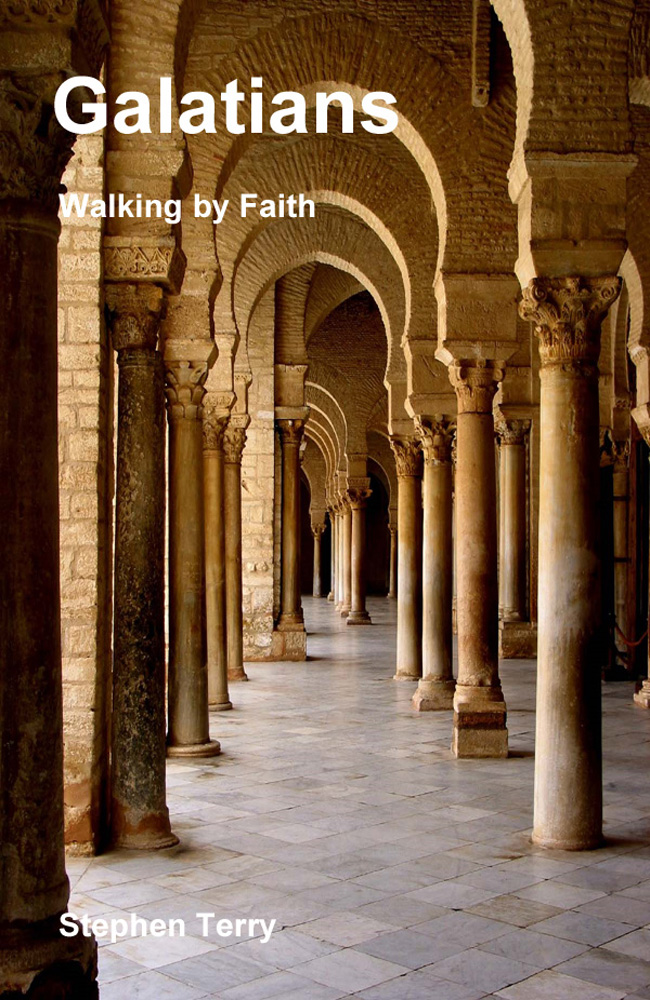
Stephen
Terry, Director

God’s
Everlasting Gospel
Commentary
for the March 9, 2019 Sabbath School Lesson
 “A third angel followed them and said in a loud voice: ‘If
anyone worships the beast and its image and receives its mark on their forehead
or on their hand, they, too, will drink the wine of God’s fury, which has been
poured full strength into the cup of his wrath. They will be tormented with
burning sulfur in the presence of the holy angels and of the Lamb. And the
smoke of their torment will rise for ever and ever. There will be no rest day
or night for those who worship the beast and its image, or for anyone who
receives the mark of its name.’”
Revelation 14:9-11, NIV
“A third angel followed them and said in a loud voice: ‘If
anyone worships the beast and its image and receives its mark on their forehead
or on their hand, they, too, will drink the wine of God’s fury, which has been
poured full strength into the cup of his wrath. They will be tormented with
burning sulfur in the presence of the holy angels and of the Lamb. And the
smoke of their torment will rise for ever and ever. There will be no rest day
or night for those who worship the beast and its image, or for anyone who
receives the mark of its name.’”
Revelation 14:9-11, NIV
Our quarterly this week, while attempting to deal with a
very complex topic, seems to get lost at times in the chaos of imagery and the
inability to cover it all in the concise arena of the weekly lesson format. It
does not help that the lesson begins inauspiciously by telling us, “Evidence
from Revelation suggests that the three angels stand for God’s people who are
entrusted with the end-time message to share with the world.” The lesson
provides no such proof that such a statement is valid and we are left to simply
accept it on its face. I would be surprised if this were the level of
professionalism of the lesson author and suspect it may be an editorial gloss
done without thought for proper research and publication requirements and more
intended to further inculcation of denominational dogma. Unfortunately, such
self-serving pronouncements, while perhaps successful with those who may have
already been to some degree pre-programmed through decades of parochial
education, even among those, there are more than a few who may recognize a
failure of intellect, reason, and evidentiary requirements. Sadly, it is made
worse by the fact that this is offered where we might expect the thesis of this
week’s study to reside. If this is our thesis and it has no clearly stated and
particular evidence offered in support, how does that bode for the remainder of
the lesson? Not well, I fear.
Things seem to go downhill from there and degenerate into a spiritual
schizophrenia. Our lesson author attempts to point out that everlasting fire
and torment are not really everlasting, even though that is the clearest
reading of the text. But because this does not fit with the understood character
of God, one is faced with the choice of either denying that the language is
plain and truthful or accepting that God intends to kill everyone who does not
agree with him, à la the Genesis deluge, only this time with fire rather than
water. God, in the latter instance, seems to come across as a genocidal maniac.
This is hardly the compassionate Jesus we see portrayed in the Gospels who said
“If you have seen me, you have seen the Father.”[i] We should not be surprised
that many have turned away from such a vengeful God, unable to wrap their heads
around such inconsistency. But is saying that “everlasting” doesn’t mean “everlasting”
the path out of this dilemma? If we take that approach, how can we say it means
everlasting when we are speaking of the “everlasting Gospel” as our lesson is
titled? That seems inconsistent at best. If Jesus is God and represents his character,
perhaps we have lost our way and strayed from the path in our understanding.
And we may have done so with our eyes wide open. As I have repeatedly mentioned
in my commentaries this quarter, our investment in the historicist approach to prophecy,
conditioned by its effectiveness in understanding the book of Daniel, and our
desire to link Revelation with that book and ignore the many parallels with
Genesis, have pushed, maybe even forced, us into a literalist approach to
Revelation that may not be warranted. What is perplexing is when something is
so obviously metaphorical we can no longer ignore it, we will abandon the
literalism and jump in with both feet, only to recoil back into literalism as
soon as we can. For instance, we can readily acknowledge that Death and Hades
being cast into the lake of fire is metaphorical because death has no corporeal
existence, yet we still feel the need to explain that “forever and ever” doesn’t
mean “forever and ever” when we read that the lost are tossed into the same everlasting
fire as Death and Hades.[ii]
Perhaps one of the things that trap us into this literalism
with Revelation is our desire to take the Genesis stories literally. We have
adopted this literalism by asserting that the earth is only a few thousand
years old, that Adam and Eve were distinct persons and these were their
individual names, and that everyone who ever lived, at least through the Abrahamic
line is accurately accounted for all the way back to that first man and woman. One
might wonder why all of that is necessary since none of it is required to
acknowledge that the earth came forth due to design rather than by
happenstance, and that the Bible came about through personal revelation
filtered through a cultural milieu. That the Bible has endured for all time is
not because it is free of errors and contradictions, as the literalists would
assert, but because it speaks profoundly through metaphorical narrative in a
manner that transcends culture. And in this sense it becomes “everlasting” as
demonstrated by its persistence in spite of every attempt to reduce it simply
to a means to control others through enforcement of literal interpretations of
its many rules in a manner that oppresses and enslaves rather than sets free in
the way Christ spoke of.[iii]
One other point I wish to make regarding this week’s lesson is the thought I
opened with that the lesson advances that the three angels are God’s people.
This places the burden for the instigation of the Parousia entirely in the
hands of men. While God may grant us the privilege of working together with him
for the salvation of souls, this interpretation seems fraught with frailty,
especially in view of the previous chapter’s contrast between those labeled with
humanity’s efforts as opposed to God’s, with the seal vis-à-vis the mark. But
perhaps even more telling is the angel’s message to come out of Babylon. If the
angel is God’s people, are the people in Babylon telling themselves to come out
of Babylon? While this may be the case, perhaps the real problem is that literalism
often pushes us into a black and white, all or none, understanding of the text.
In other words, we may be making a false dichotomy where none exists. Since the
Greek word translated as “angels” simply means messengers, why must we limit it
to only one kind of messenger? Some might then want to limit this to heavenly
angels, but then we are being perhaps too literal again. Why can this not refer
to messengers both earthly and heavenly, in fact to anyone proclaiming these
messages?
What is the core of this message? If we look back
through the pages of the Bible and follow the narrative down through the ages,
it can be concisely expressed as a “tale of two cities.” One, Jerusalem,
represents the presence and power of God among mankind. We first hear of
Jerusalem in Genesis in association with Melchizedek, priest of Salem[iv] (Jerusalem in Hebrew
means “city of Salem”) The Epistle to the Hebrews, millennia later, identifies
this high priest as Christ,[v] thus linking Jerusalem
with the kingdom of God. This link is well attested in scripture with repeated
references to Jerusalem being the city of God.[vi] On the other hand, we
have Babylon. The name originates with Nimrod who is said to have built Babylon
as well as several other cities that were identified with the Assyrian and
Babylonian empires.[vii]
Perhaps then we can understand that these cities and their founders represent
opposing kingdoms. One kingdom is based upon trust in God. The other is based
upon trust in mankind. Since the Bible is written from the perspective of the
former, as one would expect, in spite of periods of ascendance over the Kingdom
of God, Jerusalem eventually triumphs in the final chapters of Revelation.
Notably, while Jerusalem literally exists today, Babylon does not, but we must
be careful about ascribing any significance to that. When we begin to transform
the metaphorical into the literal, we begin to strike our hull on rocky shoals.
We attach undue significance to things like rebuilding the temple in Jerusalem
and the expectation of a literal Battle of Armageddon. Then we can be misled
into acting out this literalism in our churches and our cultures. Too often we
use it to coerce others into being what we have decided are good citizens of
the kingdom of God. In doing so we pick and choose which attributes of
citizenship are most appropriate. For instance, some will focus on the plague
of widespread abortions while others will focus on other issues like inadequate
health care or poverty. Instead of seeing those who are working on different
problems as allies and fellow citizens in God’s kingdom, we see them as enemies
because God has called them to work on a different problem than the one we are
working on. As a result, we end up in the confusion and chaos of Babylon. It
takes little effort to see that confusion and divisiveness around us to today,
even within the precincts of the church. Little wonder then that Revelation
posits a necessity to come out of that chaos. It cannot stand and is destined
to collapse in the face of such division. The problem of those wanting everyone
to dance only to their tune existed in Christ’s day[viii] and continues to plague
the world, for though the city of Babylon does not exist, the spirit remains.
God urges us to come out of that mess.
Perhaps we should consider setting aside the literalism
that divides us and seek the spirit which unites us. It is not our ability to
control the narrative that will save us. Rather it is our ability to see the
diversity in that narrative that will allow us to recognize what is truly the
confusion of Babylon and what is simply another citizen in the Kingdom of God,
sharing the compassion and love of Christ to others that we have no calling to
reach. The body has many parts; all are necessary.[ix]
